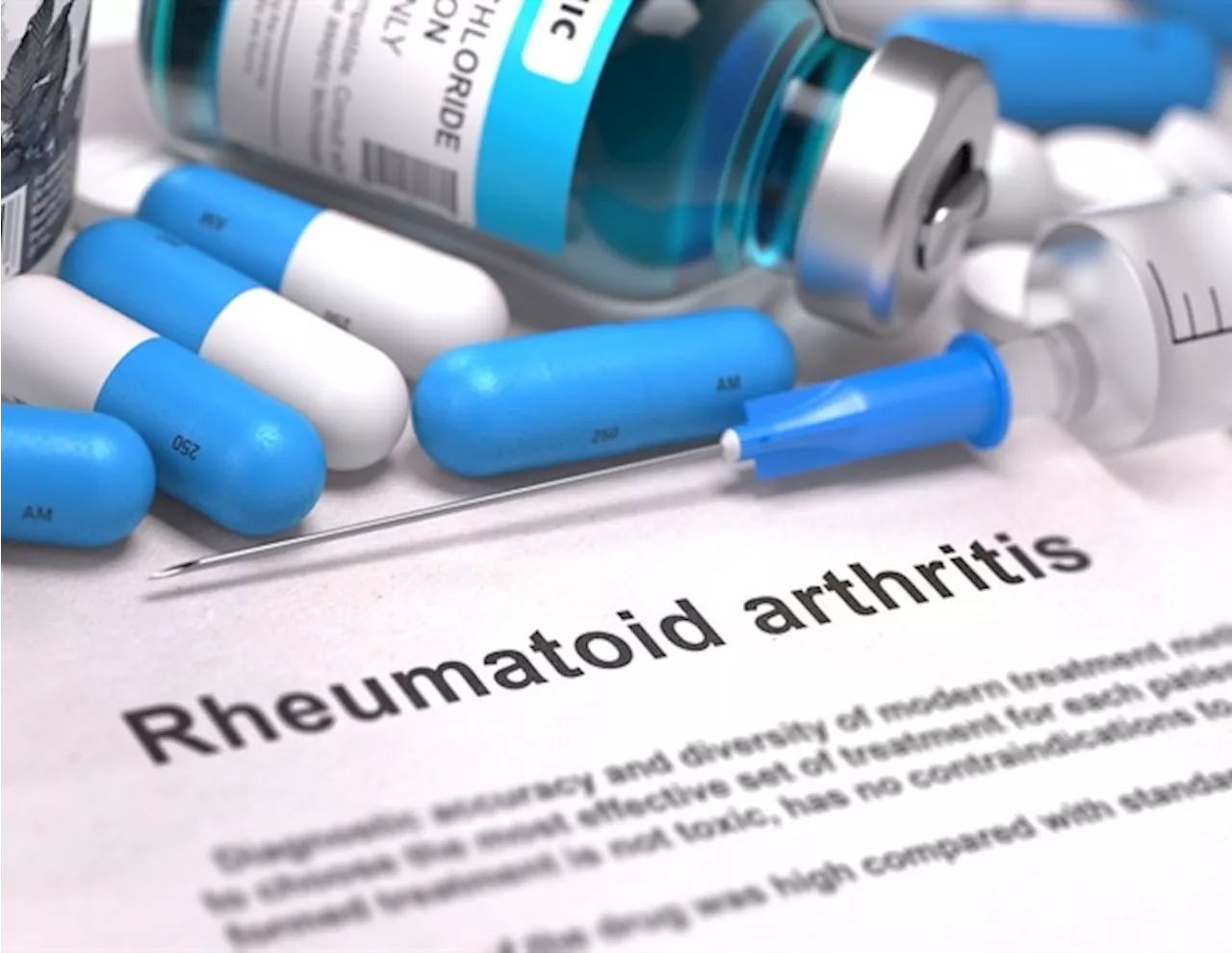Researchers led by Yasuhiro Murakawa at the RIKEN Center for Integrative Medical Sciences (IMS) and Kyoto University in Japan and IFOM ETS in Italy have discovered several rare types of helper T cells that are associated with immune disorders such as multiple sclerosis, rheumatoid arthritis, and even asthma.
Jul 4 2024 Researchers led by Yasuhiro Murakawa at the RIKEN Center for Integrative Medical Sciences and Kyoto University in Japan and IFOM ETS in Italy have discovered several rare types of helper T cells that are associated with immune disorders such as multiple sclerosis , rheumatoid arthritis , and even asthma.
Within all cells, including T cells, there are regions of DNA called "enhancers". This DNA does not code for proteins. Instead, it codes for small pieces of RNA, and enhances the expression of other genes. Variations in T cell enhancer DNA therefore lead to differences in gene expression, and this can affect how T cells function. Some enhancers are bidirectional, which means that both strands of the DNA are used as templates for enhancer RNA.
When the researchers combined the GWAS data with the results of their ReapTEC analysis, they found that genetic variants for immune-mediated diseases were often located within the bidirectional enhancer DNA of the rare T cells that they had identified. In contrast, genetic variants for neurological diseases did not show a similar pattern, meaning that the bidirectional enhancers in these rare T cells are related specifically to immune-mediated diseases.
Arthritis Asthma Cell DNA Gene Genetic Multiple Sclerosis Nucleotide Rheumatoid Arthritis RNA Sclerosis Technology
United Kingdom Latest News, United Kingdom Headlines
Similar News:You can also read news stories similar to this one that we have collected from other news sources.
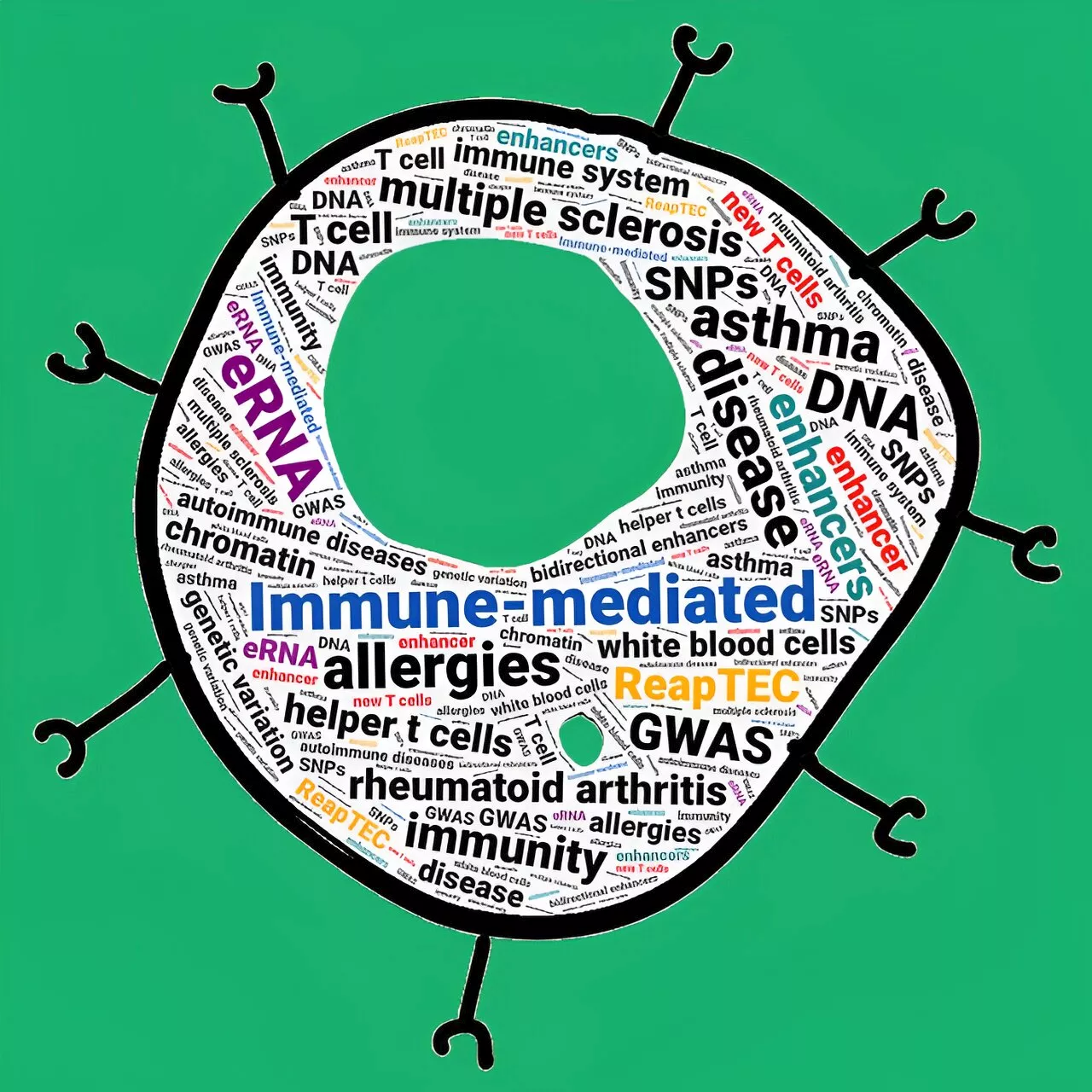 Scientists discover new T cells and genes related to immune disordersResearchers led by Yasuhiro Murakawa at the RIKEN Center for Integrative Medical Sciences (IMS) and Kyoto University in Japan and IFOM ETS in Italy have discovered several rare types of helper T cells that are associated with immune disorders such as multiple sclerosis, rheumatoid arthritis, and even asthma.
Scientists discover new T cells and genes related to immune disordersResearchers led by Yasuhiro Murakawa at the RIKEN Center for Integrative Medical Sciences (IMS) and Kyoto University in Japan and IFOM ETS in Italy have discovered several rare types of helper T cells that are associated with immune disorders such as multiple sclerosis, rheumatoid arthritis, and even asthma.
Read more »
 Researchers identify key differences in inner workings of immune cellsCytotoxic T cells are an important component of the immune system. Once activated, they differentiate into either short-lived effector cells or long-lived memory cells.
Researchers identify key differences in inner workings of immune cellsCytotoxic T cells are an important component of the immune system. Once activated, they differentiate into either short-lived effector cells or long-lived memory cells.
Read more »
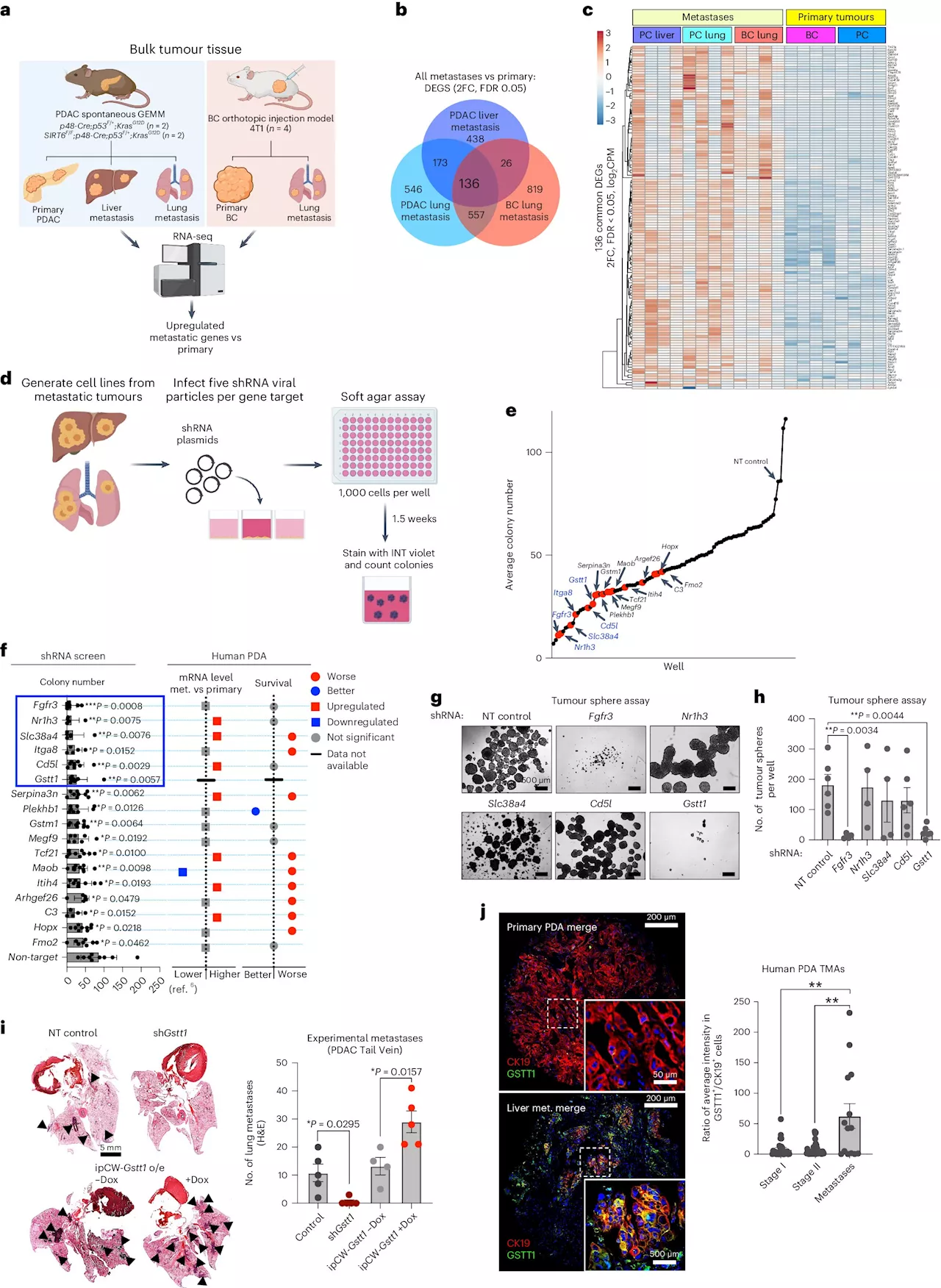 Researchers identify a gene that helps cancer cells spread throughout the bodyMetastatic cancer cells, which cause 90% of cancer-related deaths, must overcome numerous hurdles to spread from a primary tumor through the bloodstream and re-establish themselves in different tissues.
Researchers identify a gene that helps cancer cells spread throughout the bodyMetastatic cancer cells, which cause 90% of cancer-related deaths, must overcome numerous hurdles to spread from a primary tumor through the bloodstream and re-establish themselves in different tissues.
Read more »
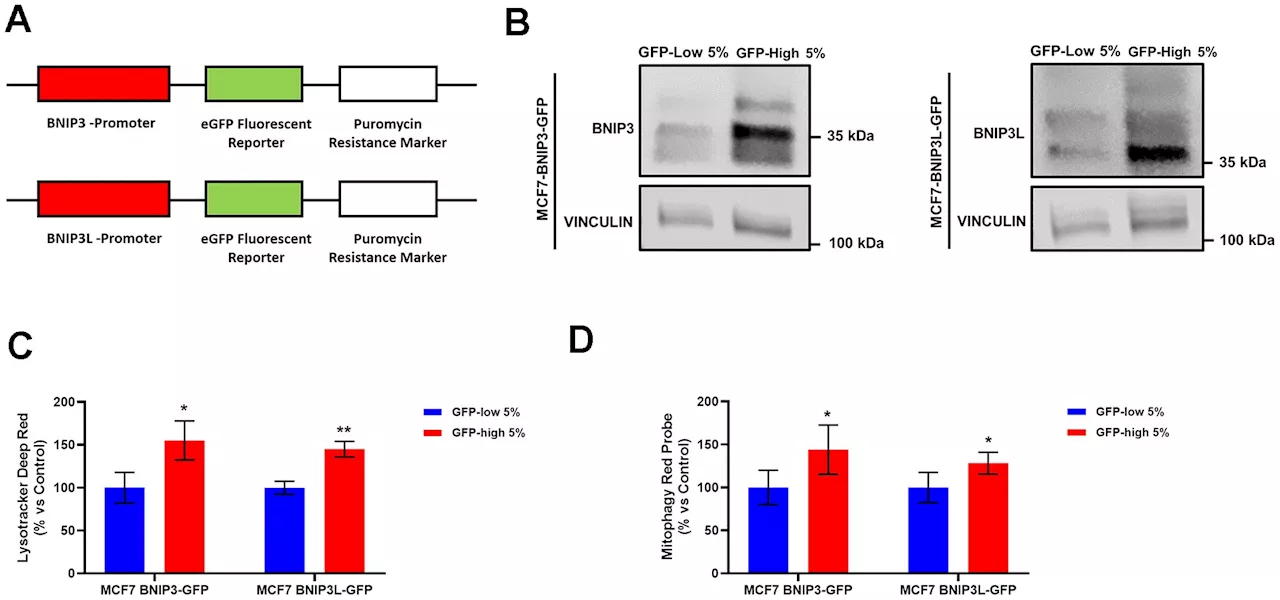 Mitophagy and cancer: Researchers describe a new model system to enrich sub-populations of cancer cellsA new research paper was published on the cover of Aging, titled, 'Mitophagy and cancer: role of BNIP3/BNIP3L as energetic drivers of stemness features, ATP production, proliferation, and cell migration.'
Mitophagy and cancer: Researchers describe a new model system to enrich sub-populations of cancer cellsA new research paper was published on the cover of Aging, titled, 'Mitophagy and cancer: role of BNIP3/BNIP3L as energetic drivers of stemness features, ATP production, proliferation, and cell migration.'
Read more »
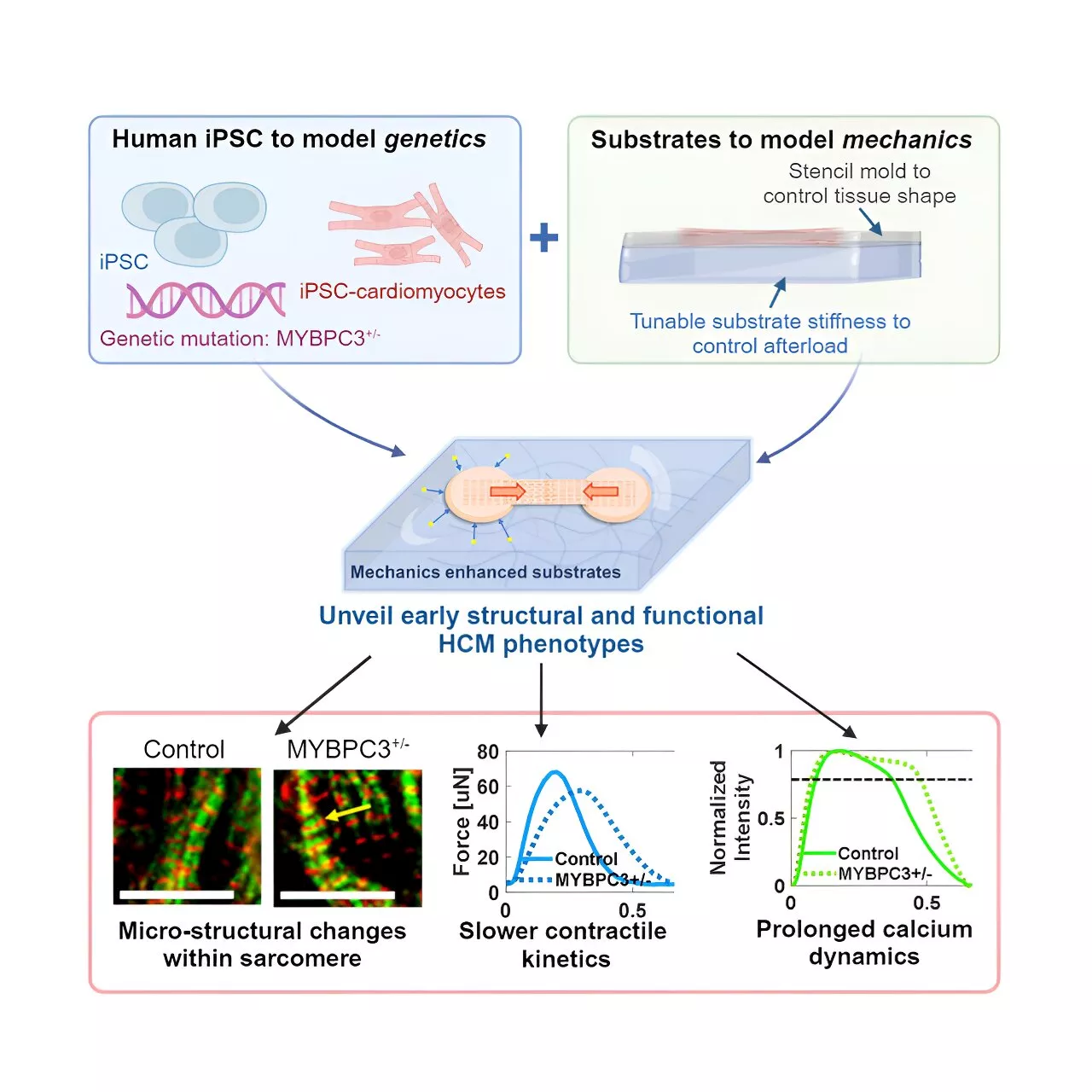 Researchers more effectively study mutations that cause heart disease by putting cells through their pacesUsing animals to study heart disease doesn't always translate well to human health outcomes, and human heart cells available for research don't work outside the human body.
Researchers more effectively study mutations that cause heart disease by putting cells through their pacesUsing animals to study heart disease doesn't always translate well to human health outcomes, and human heart cells available for research don't work outside the human body.
Read more »
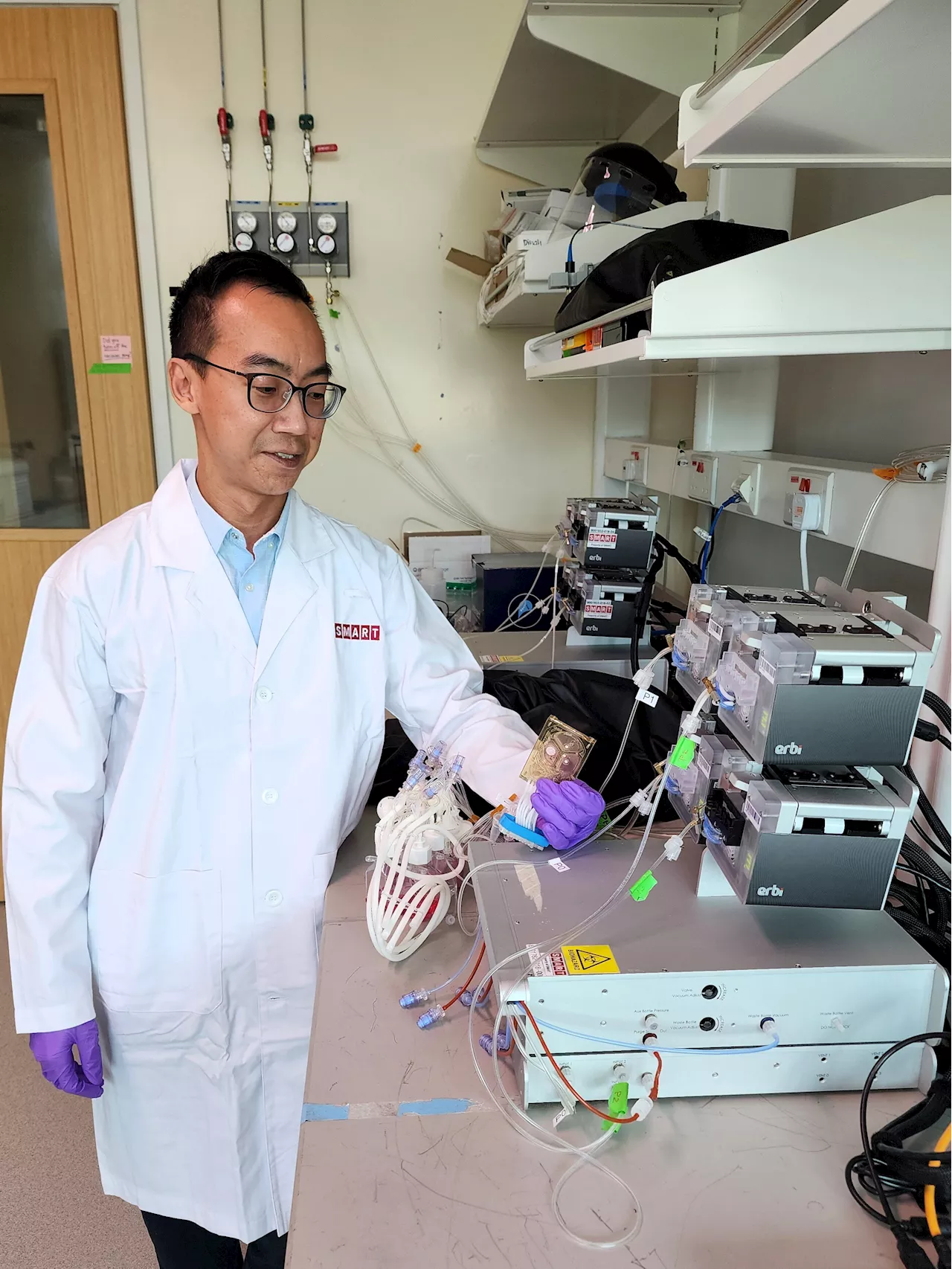 Researchers pioneer production of CAR T-cells using high-density microfluidic bioreactorResearchers have developed a novel method capable of producing clinical doses of viable autologous chimeric antigen receptor (CAR) T-cells in a ultra-small automated closed-system microfluidic chip, roughly the size of a pack of cards.
Researchers pioneer production of CAR T-cells using high-density microfluidic bioreactorResearchers have developed a novel method capable of producing clinical doses of viable autologous chimeric antigen receptor (CAR) T-cells in a ultra-small automated closed-system microfluidic chip, roughly the size of a pack of cards.
Read more »
